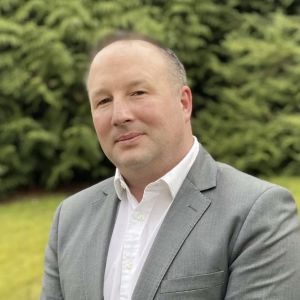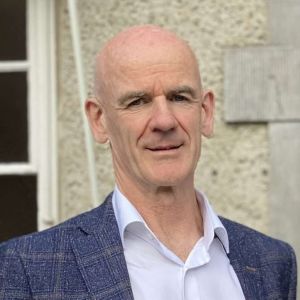Ardee, Ireland
Smarmore Castle Private Clinic
Verified
Verified
This provider’s information has been quality-checked by Recovery.com’s Research Team for accuracy and completeness, including center verification through appropriate third-party organizations.
Provider's Policy
Smarmore Castle Private Clinic accepts the following insurers: •ESB Staff Medical Provident Fund •GeoBlue •St. Paul's Garda •Tricare •VHI Healthcare
Estimated Cash Pay Rate
The cost listed here (€18,780+ / 28 Days) is an estimate of the cash pay price. Center pricing can vary based on program and length of stay. Contact the center for more information. Recovery.com strives for price transparency so you can make an informed decision.
About Smarmore Castle Private Clinic
Smarmore Castle is a countryside detox and residential facility treating substance addiction, gambling and gaming addiction, and co-occurring conditions like depression, anxiety, burnout, trauma, relationship issues, and eating disorders. Their renowned medical director and clinical team conducts a medical examination upon arrival to tailor treatment to client needs. They offer medical detox, as needed. Smarmore Castle is part of the Castle Health Group that includes Castle Craig in Scotland, Stockholms beroendeklinik, CATCH Recovery in London, and Castle Craig Nederlands.
Treatment Approach
The Smarmore Castle vision of recovery goes beyond helping clients when they are in treatment—they aim for long-lasting results. Their programme encompasses a range of therapeutic tools to treat the root cause of the condition(s). Their abstinence-based, evidence-based treatment follows 12-Step philosophy and incorporates individual therapy and group therapy. Complementary therapies include equine therapy, creative writing, and hyperbaric oxygen therapy. They offer trauma-informed therapy, eye movement desensitisation and reprocessing (EMDR), and PTSD-specific therapy.
Family Treatment and Aftercare
Smarmore Castle offers a robust family programme and intervention services with a trained interventionist. Their aftercare includes a comprehensive 24-week programme, offering individual and group therapy sessions, relapse prevention planning, skill building, support network integration, and a holistic wellness focus. Services cater to improving mental and physical health, providing accountability through routine check-ins and peer support, and improving life quality and relationships. Additional services like sober transport and retreats are also available, with the aim to support a smooth transition from rehab to everyday life.
Private Location with High-Quality Care and Impressive Facilities
Built in the 14th century, Smarmore Castle’s mansion has retained many of its original features. Since it was purchased by the McCanns, it’s been fully renovated to fulfill all necessary requirements of a leading treatment center in Ireland. Smarmore Castle delivers a full holistic package that includes dietary assessments and nutritional counseling, swimming, aqua aerobics fitness, and yoga. Private rooms are available for an additional cost. They are the only rehab clinic in Ireland to have a swimming pool, sauna, steam room, and gym. Spa services include acupuncture, aromatherapy, and massage. Smarmore Castle additionally undergoes rigorous inspections by CHKS, an independent quality improvement inspectorate. The most recent CHKS inspection reported that Smarmore Castle has an “amazing setting”, “impressive, spacious and clean” and “exceptionally high standards of care and excellent facilities.”
Read More

Insurance Accepted
Provider's Policy:Smarmore Castle Private Clinic accepts the following insurers: •ESB Staff Medical Provident Fund •GeoBlue •St. Paul's Garda •Tricare •VHI Healthcare

Tricare
<p>Providing health care programs that reinforce, maintain, and sustain good health for uniformed service members, retirees, and their families globally.</p>
See rehabs that accept this provider.
Cigna
Cigna's unique history traces back to 1792, but today they offer services to 190 million customers in 30 different countries across the globe.
See rehabs that accept this provider.
BlueCross BlueShield
<p>A leading healthcare provider serving over 100 million Americans as one of the largest insurance companies in the country.</p>
See rehabs that accept this provider.Medically Managed Detox
Smarmore Castle's detox programme is directed by a Consultant Psychiatrist and managed by medical professionals, ensuring comfort, safety and efficacy. All patients are closely monitored through the process of detoxification, easing withdrawal symptoms and reviewing their condition several times a day. Experienced nursing staff are on duty 24/7.
Stunning Accommodations
Smarmore Castle is housed in a 14th century house with stunning original Georgian features intact. The woodland estate ensures a peaceful, private place to recover in natural surroundings. On-site spa services like massage and acupuncture help clients holistically heal. They have a swimming pool, sauna, steam room, and gym.
Aftercare Programme
Smarmore Castle provides a robust aftercare programme with 24 weeks of comprehensive care. Their clinical team offers individual and group therapy sessions focusing on relapse prevention planning, skill building, support network integration, and a holistic wellness focus. There are routine check-ins and peer support, sober transport, and retreats also available.
Swimming Pool and Spa Facilities
Smarmore Castle offers a 22-metre swimming pool for leisure and aquatic exercise such as aqua aerobics and yoga. The feeling of weightlessness when exercising in water has been found to have a calming and destressing effect. Additionally, their sauna and steam rooms are incredible tools for practicing relaxation techniques, and greatly aid the detox process.

Center Overview
Estimated Cash Pay Rate
Older Adults
Addiction and mental health treatment caters to adults 55+ and the age-specific challenges that can come with recovery, wellness, and overall happiness.
Co-Occurring Disorders
A person with multiple mental health diagnoses, such as addiction and depression, has co-occurring disorders also called dual diagnosis.
Executives
Executive treatment programs typically directly support the needs of people who manage businesses and may provide flexible schedules and office space to allow work during treatment.
Young Adults
Emerging adults ages 18-25 receive treatment catered to the unique challenges of early adulthood, like college, risky behaviors, and vocational struggles.
LGBTQ+
Addiction and mental illnesses in the LGBTQ+ community must be treated with an affirming, safe, and relevant approach, which many centers provide.
Men and Women
Men and women attend treatment for addiction in a co-ed setting, going to therapy groups together to share experiences, struggles, and successes.
Midlife Adults
For adults ages 40+, treatment shifts to focus on the unique challenges, blocks, and risk factors of their age group, and unites peers in a similar community.
Mild Disabilities
Adults with mild physical or intellectual disabilities receive treatment catered to their specific needs in a safe and clinically supportive environment.
Professionals
Busy, high-ranking professionals get the personalized treatment they need with greater accommodations for work, privacy, and outside communication.
Veterans
Patients who completed active military duty receive specialized treatment focused on trauma, grief, loss, and finding a new work-life balance.
Treatment Focus
This center treats primary substance use disorders and co-occurring mental health conditions. Your treatment plan addresses each condition at once with personalized, compassionate care for comprehensive healing.

Care Options







Treatment
Specializations
Alcohol
Using alcohol as a coping mechanism, or drinking excessively throughout the week, signals an alcohol use disorder.
Detox
Detox fully and safely removes toxic substances from the body, allowing the next steps in treatment to begin with a clean slate.
Benzodiazepines
Benzodiazepines are prescribed to treat anxiety and sleep issues. They are highly habit forming, and their abuse can cause mood changes and poor judgement.
Co-Occurring Disorders
A person with multiple mental health diagnoses, such as addiction and depression, has co-occurring disorders also called dual diagnosis.
Cocaine
Cocaine is a stimulant with euphoric effects. Agitation, muscle ticks, psychosis, and heart issues are common symptoms of cocaine abuse.
Drug Addiction
Drug addiction is the excessive and repetitive use of substances, despite harmful consequences to a person's life, health, and relationships.
Gambling
Excessive, repetitive gambling causes financial and interpersonal problems. This addiction can interfere with work, friendships, and familial relationships.
Heroin
Heroin is a highly addictive and illegal opioid. It can cause insomnia, collapsed veins, heart issues, and additional mental health issues.
Approaches
Evidence-Based
A combination of scientifically rooted therapies and treatments make up evidence-based care, defined by their measured and proven results.
Holistic
A non-medicinal, wellness-focused approach that aims to align the mind, body, and spirit for deep and lasting healing.
Minnesota Model
The Minnesota Model encourages abstinence and family-wide healing through the 12-Steps, group therapy, and individualized, psychological treatment.
Personalized Treatment
The specific needs, histories, and conditions of individual patients receive personalized, highly relevant care throughout their recovery journey.
Twelve Step
Incorporating spirituality, community, and responsibility, 12-Step philosophies prioritize the guidance of a Higher Power and a continuation of 12-Step practices.
Wellness
Wellness philosophies focus on the physical, mental, and spiritual wellness of each patient, helping them restore purpose with natural remedies.
Therapies
1-on-1 Counseling
Patient and therapist meet 1-on-1 to work through difficult emotions and behavioral challenges in a personal, private setting.
Meditation & Mindfulness
A practiced state of mind that brings patients to the present. It allows them to become fully aware of themselves, their feelings, and the present moment.
Trauma-Specific Therapy
This form of talk therapy addresses any childhood trauma at the root of a patient's current diagnosis.
Online Therapy
Patients can connect with a therapist via videochat, messaging, email, or phone. Remote therapy makes treatment more accessible.
Rational Emotive Behavior Therapy
A type of cognitive therapy that identifies negative self-defeating thoughts and behaviors, rewriting beliefs to be positive, empowering, and present.
Mindfulness Therapy
This ancient practice can be mental, emotional, and even spiritual. In meditation, you focus your attention on the present moment without judgement.
Art Therapy
Visual art invites patients to examine the emotions within their work, focusing on the process of creativity and its gentle therapeutic power.
Conditions We Treat
Pornography Addiction
A person with a porn addiction is emotionally dependent on pornography to the point that it interferes with their daily life and relationships.
Grief and Loss
Grief is a natural reaction to loss, but severe grief can interfere with your ability to function. You can get treatment for this condition.
Personality Disorders
Personality disorders destabilize the way a person thinks, feels, and behaves. If untreated, they can undermine relationships and lead to severe distress.
ADHD, ADD
ADHD is a common mental health condition caused by dopamine imbalance. Common symptoms include inattention, hyperactivitiy, and impulsivity.
Anger
Although anger itself isn't a disorder, it can get out of hand. If this feeling interferes with your relationships and daily functioning, treatment can help.
Anxiety
Anxiety is a common mental health condition that can include excessive worry, panic attacks, physical tension, and increased blood pressure.
Bipolar
This mental health condition is characterized by extreme mood swings between depression, mania, and remission.
Burnout
Burnout entails mental and physical exhaustion, and leads to a severe lack of fulfillment. This condition is often caused by overwork.
Chronic Pain Management
Long-term physical pain can have an affect on mental health. Without support, it can also impact your daily life and even lead to addiction.
Substances We Treat
Alcohol
Using alcohol as a coping mechanism, or drinking excessively throughout the week, signals an alcohol use disorder.
Benzodiazepines
Benzodiazepines are prescribed to treat anxiety and sleep issues. They are highly habit forming, and their abuse can cause mood changes and poor judgement.
Chronic Relapse
Consistent relapse occurs repeatedly, after partial recovery from addiction. This condition requires long-term treatment.
Co-Occurring Disorders
A person with multiple mental health diagnoses, such as addiction and depression, has co-occurring disorders also called dual diagnosis.
Cocaine
Cocaine is a stimulant with euphoric effects. Agitation, muscle ticks, psychosis, and heart issues are common symptoms of cocaine abuse.
Drug Addiction
Drug addiction is the excessive and repetitive use of substances, despite harmful consequences to a person's life, health, and relationships.
Ecstasy
Ecstasy is a stimulant that causes intense euphoria and heightened awareness. Abuse of this drug can trigger depression, insomnia, and memory problems.
Heroin
Heroin is a highly addictive and illegal opioid. It can cause insomnia, collapsed veins, heart issues, and additional mental health issues.
Psychedelics
Hallucinogenic drugs—like LSD—cause euphoria and increased sensory experiences. When abused, they can lead to depression and psychosis.
Aftercare
Experience
Personal Amenities
Amenities
Special Considerations
Gender-specific groups
Patients in gender-specific groups gain the opportunity to discuss challenges unique to their gender in a comfortable, safe setting conducive to healing.
Activities
Yoga
Yoga is both a physical and spiritual practice. It includes a flow of movement, breathing techniques, and meditation.
Off-Site Activities
Professional Staff

Dominic McCann
Chief Executive Officer

Keith Cassidy
Clinic Manager
Doctoral Candidate in Psychotherapy

Dr. Hugh Gallagher
Medical Director
General Practitioner - Specialization Addiction Medicine

Philip Grant
Senior Addiction Therapist
Post Graduate Diploma in Counselling and Supervision, Accredited Sensorimotor Psychotherapist
View More Team Members
We love hearing about your treatment experience
Help individuals and families seeking treatment by sharing your first-hand experience with this treatment provider. Review Guidelines.



































